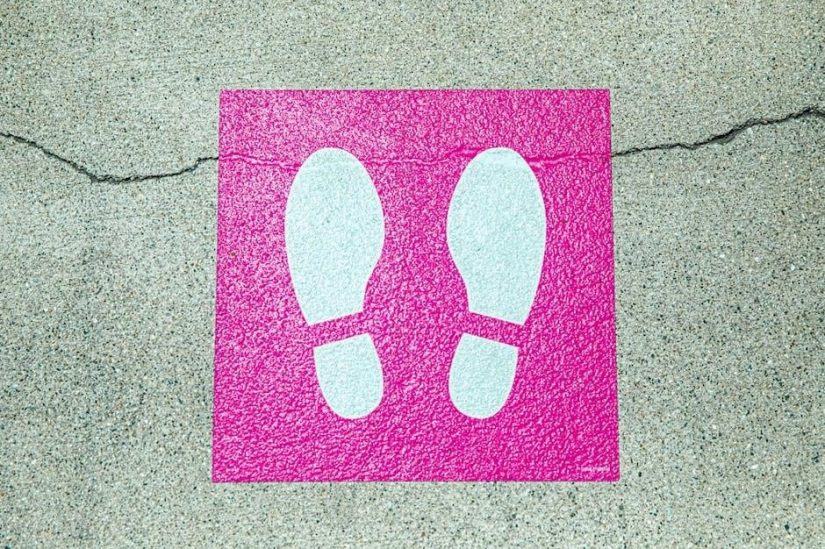The 4th Step Guide is a crucial tool for personal growth and spiritual awakening in recovery programs, helping individuals confront their past with honesty and courage.
Understanding the Purpose of the 4th Step
The 4th Step is a cornerstone of recovery, guiding individuals to confront their past actions, emotions, and behaviors. Its purpose is to help create a “searching and fearless moral inventory” of oneself, fostering honesty and self-awareness. This step encourages individuals to examine resentments, fears, sexual conduct, and harms done to others, promoting accountability and personal growth. By identifying these patterns, individuals can begin to understand how their actions have impacted themselves and others, laying the groundwork for spiritual awakening and change. The 4th Step is not about self-punishment but about gaining clarity and preparing for amends, making it a vital step toward lasting recovery and emotional freedom.
Using guides like the Joe & Charlie Big Book Study, individuals can systematically approach this inventory, ensuring they address each aspect thoroughly. The process helps break down complex emotions and behaviors, making them manageable and actionable. This step is foundational for building humility and readiness to move forward in the recovery journey.
Overview of the 4th Step Inventory Process
The 4th Step inventory process involves creating a detailed, written examination of one’s life, focusing on resentments, fears, sexual conduct, and harms done to others. This systematic approach helps individuals identify patterns and root causes of their behaviors, fostering accountability and self-awareness. The process encourages honesty and clarity, often using guides like the Joe & Charlie Big Book Study to structure the inventory. By categorizing experiences, individuals can address each aspect methodically, preparing for personal growth and amends.
Resources such as worksheets and step-by-step instructions are widely used to facilitate this process. The goal is to create a comprehensive and fearless inventory, enabling individuals to confront their past with courage and integrity. This step is foundational for spiritual growth and readiness to progress in recovery.
The 4th Step Guide: A Detailed Breakdown
The 4th Step Guide provides a structured approach to conducting a moral inventory, focusing on resentments, fears, sex conduct, and harms done to others.
It utilizes worksheets and the Big Book for clarity and depth, ensuring a thorough examination of past actions and behaviors.
What is a Searching and Fearless Moral Inventory?
A searching and fearless moral inventory involves a thorough examination of one’s past actions, thoughts, and feelings. It requires honesty and courage to confront flaws, resentments, and harms without self-deception. This step encourages individuals to look at how their behaviors have affected themselves and others, often revealing patterns rooted in selfishness or fear. The process is guided by the Big Book and worksheets, helping to organize reflections and identify areas for personal growth. The goal is to achieve a deeper understanding of oneself and prepare for spiritual awakening. This inventory is not about self-punishment but about gaining clarity and humility, essential for progressing in recovery and fostering positive change.
The Four Key Categories: Resentments, Fears, Sex Conduct, and Harms Done to Others
The 4th Step Inventory focuses on four key categories: resentments, fears, sex conduct, and harms done to others. Resentments involve listing people, places, or situations that trigger anger or bitterness. Fears are examined to understand their roots and emotional impact. Sex conduct requires honesty about past behaviors that may have caused harm. Harms done to others involve acknowledging actions that affected people negatively. These categories help individuals identify patterns of selfishness and fear, fostering accountability and humility. By addressing these areas, the inventory promotes self-awareness and prepares one for making amends, which is crucial for spiritual growth and recovery. This structured approach ensures a comprehensive and meaningful reflection.
Using the Big Book as a Reference for the 4th Step
The Big Book serves as a foundational guide for completing the 4th Step, offering clear instructions and examples. Pages 63-71 provide detailed direction, emphasizing the importance of a “searching and fearless moral inventory.” The text encourages honesty and thoroughness, suggesting specific questions to ask oneself. While the Big Book does not require writing down every thought, many find it helpful to document their reflections. Worksheets based on the Big Book’s guidance are widely used to organize resentments, fears, sex conduct, and harms done to others. By following the Big Book’s framework, individuals can systematically examine their actions and emotions, fostering accountability and spiritual growth. This structured approach ensures a meaningful and effective inventory process.

Completing the 4th Step Inventory
Completing the 4th Step involves documenting resentments, fears, and harms, ensuring honesty and clarity. This process prepares individuals for amends and fosters spiritual growth and self-awareness.
Step-by-Step Instructions for the Inventory
Begin by reading the Big Book (pages 63-71) to understand the 4th Step process. Start with the first column, listing people, institutions, or principles you resent. Next, note the cause of your resentment and how it affected you. In the second column, identify the character defects that contributed to these feelings. The third column focuses on the part you played in each situation. Finally, in the fourth column, list your fears and sexual conduct, along with any harms done to others. Be thorough and honest, as this inventory is a foundation for spiritual growth. Use worksheets to organize your thoughts and seek guidance from a sponsor if needed. This process fosters accountability, self-awareness, and readiness for amends.

How to Identify and Document Resentments
Identifying resentments involves listing people, institutions, or principles that have caused harm or upset. Begin by reflecting on past experiences and emotions, focusing on feelings of anger, hurt, or injustice. For each resentment, note the person or situation, the cause of the resentment, and how it affected you. Be specific and honest, as this step requires self-reflection. Use the first column of the inventory guide to document these resentments. Consider how your actions or reactions contributed to the situation, and explore any underlying fears or insecurities. This process helps uncover patterns and character defects, fostering accountability and clarity. Documenting resentments is a critical step toward understanding their impact and preparing for amends. Honesty is key to a fearless and thorough inventory.
How to Address Fears and Sex Conduct in Your Inventory
Addressing fears and sex conduct in your inventory requires honesty and self-reflection. Start by identifying fears related to people, security, or sex, and document how they have impacted your life. Write down each fear and its source, such as past experiences or underlying insecurities. For sex conduct, reflect on past actions and their consequences, being truthful about any harm caused. Consider how these behaviors may have stemmed from selfishness, fear, or other defects. Use the inventory guide to organize your thoughts, ensuring clarity and accountability. This process helps uncover patterns and promotes personal growth. By confronting these areas, you prepare for amends and foster healthier relationships. Honesty is crucial to understanding and overcoming these challenges.
Documenting Harms Done to Others and Preparing for Amends
Documenting harms done to others involves listing specific instances where your actions caused pain or injury. Use the inventory guide to detail each harm, including the person affected, the incident, and its consequences. Reflect on how your behavior was selfish or hurtful, and identify any patterns or recurring issues. This step requires honesty and accountability. Once documented, prepare for amends by considering how to make things right. The goal is not to seek forgiveness but to take responsibility and repair relationships. This process fosters humility and sets the foundation for spiritual growth. Be thorough and specific, as this step is essential for personal healing and rebuilding trust with others.

The Role of Worksheets and Resources
Worksheets and guides, like the Joe & Charlie Big Book Study, provide structured methods for documenting resentments, fears, and harms, ensuring a thorough and effective inventory process.
Using the Joe & Charlie 4th Step Guide
The Joe & Charlie 4th Step Guide is a widely-used resource for completing a searching and fearless moral inventory. Originating from early recovery materials, it offers a structured approach to documenting resentments, fears, and harms. The guide divides the inventory into sections like Childhood, Adolescence, and Adulthood, helping users systematically review their lives. It emphasizes understanding the root causes of emotions and behaviors, encouraging honesty and self-reflection. While the Big Book suggests some parts are optional, the guide recommends writing everything down for clarity. This comprehensive method aids in identifying patterns and preparing for amends, making it a popular choice for workshops and sponsors alike. Its detailed framework supports deep introspection and spiritual growth.

Best Practices for Filling Out 4th Step Worksheets
Filling out 4th Step worksheets requires honesty, clarity, and thoroughness. Start by creating a quiet, distraction-free environment to focus on self-reflection. Begin with resentments, documenting specific incidents, emotions, and underlying causes. Use the four categories—resentments, fears, sex conduct, and harms—to organize your thoughts. The column method, as suggested in many guides, helps break down each issue into cause, emotion, and effect. Be specific and avoid generalizations to ensure depth. Seek guidance from a sponsor to stay on track and address challenges. Review and update your inventory regularly, as new insights may emerge. Remember, the goal is to confront past actions and emotions fearlessly, laying the groundwork for spiritual growth and amends. Completing this step diligently fosters accountability and prepares you for the next phase of recovery.
Completing the 4th Step brings peace and clarity, preparing you for the 5th Step—sharing your inventory and continuing your spiritual journey toward healing and growth.
Reflection and Spiritual Growth After the 4th Step

Completing the 4th Step often leads to profound spiritual growth, as individuals confront their past and gain clarity on their values and behaviors. This process fosters humility, self-awareness, and a deeper connection to one’s spiritual beliefs. Many find peace and calmness after the inventory, as burdens are released. The act of honestly examining resentments, fears, and harms done to others encourages emotional healing and personal responsibility; This step is a cornerstone for spiritual awakening, helping individuals move beyond self-centeredness and embrace a more empathetic and purposeful life. The reflection that follows the 4th Step strengthens one’s commitment to recovery and prepares them for the next steps in their spiritual journey.
Preparing for the 5th Step: Sharing Your Inventory
After completing the 4th Step, the next step is to prepare for sharing the inventory with a sponsor or trusted individual. This involves reviewing the findings with honesty and openness. The process requires courage and trust, as it involves revealing personal truths. Many find it helpful to organize their inventory clearly, ensuring they are ready to discuss resentments, fears, and harms done. The Joe & Charlie guide and Big Book examples provide guidance on how to approach this vulnerable step. Sharing the inventory is a cornerstone of spiritual growth, fostering humility and accountability. It is essential to approach this step with willingness, as it prepares the individual for the liberation and healing that comes from confession and amends.
